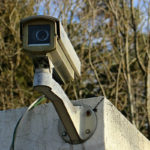Security Camera: What NOT To Do
When it comes to security cameras, there are many mistakes that can compromise the effectiveness of your surveillance system. Don’t make these mistakes when installing your security cameras.
- Don’t use indoor security cameras outdoors.
Sounds like common sense, right? Indoor security cameras are tailored to indoor conditions, so using them outside would produce poor quality videos and images. And the same goes for outdoor cameras being used indoors – just don’t do it.
- Don’t mount security cameras in or near direct sunlight.
Direct sunlight can damage your camera overtime, decreasing its overall lifespan. In addition, it can wash out images, deeming your footage useless. Consider investing in outdoor housing that can protect your cameras and adjusting the angle of your camera so that the sunlight does not interfere with your images.
- Don’t place your camera in an area where it will be completely exposed to the weather.
You want to be wary of weather conditions when installing outdoor cameras. Be sure to check the IP ratings of the cameras and any additional housing you may invest in. And, if possible, install your outdoor cameras under the eaves for added protection.
- Don’t install surveillance cameras in areas that are not well lit at night.
That is, unless you have a night vision camera. Cameras without night vision or a comparable feature will not produce any usable images in the dark.
- Don’t install cameras without informing employees, neighbors, the public, or loved ones.
When recording, you must inform others that they are under surveillance. The easiest way is to install a well-designed sign in a high traffic area so that it is seen by everyone. Be sure to check with local laws and ensure you are in compliance with all laws before implementing your surveillance system.
- Don’t use substandard or weak mounting equipment.
If your mounting equipment is not as sturdy, you decrease performance and safety and leave your equipment vulnerable to tampering or theft. Also, it should go without saying, but please do NOT attach your cameras to the gutter.
- Don’t place cameras where there may be obstructions.
Again, this may sound like common sense but it must be said. While it may seem like there are no obstructions when you first install your cameras, sometimes natural elements can change that. For example, on a particularly windy day, a branch from a nearby tree may block your camera’s view. Be sure to consider all potential obstructions before settling on a location.
- Don’t leave wires exposed.
By doing so, you may invite others to hack, damage, or disable your camera system. In addition, exposed wires can pose a safety hazards for young children and adults.
- Don’t place your camera where it will be easily accessible or within reach.
Again, this makes it easier for intruders to hack, disable, or even steal your cameras. It helps to install your cameras high and out of reach, not only to prevent theft or vandalism, but to also get a better view of the area.
- Don’t merely place your camera viewing your front door.
Of course the front door is an important place to monitor, but really, you should be watching all potential points of entry (ex. sliding doors, basement doors, windows).
If you have any other security camera tips to share, connect with us on Facebook, Twitter, LinkedIn, and Pinterest.
Need help finding the right security system for you? Choose SecurityCamExpert.com! We can guide you through the process of choosing the security cameras that will best suit your needs. If you are in Southern California, we can even install the system for you. Visit us online or call 888-203-6294 to learn more.
